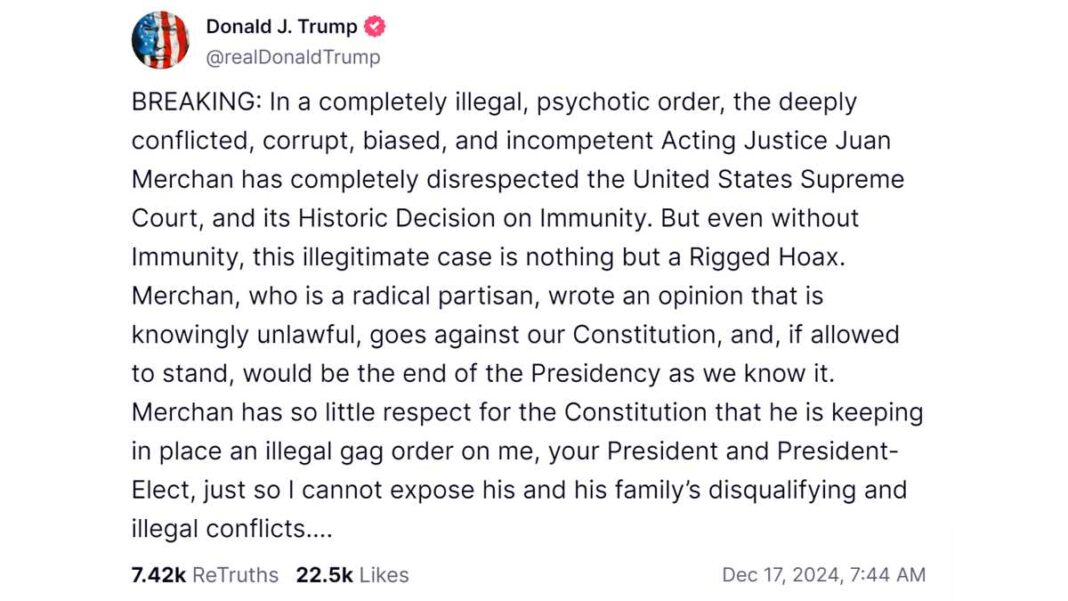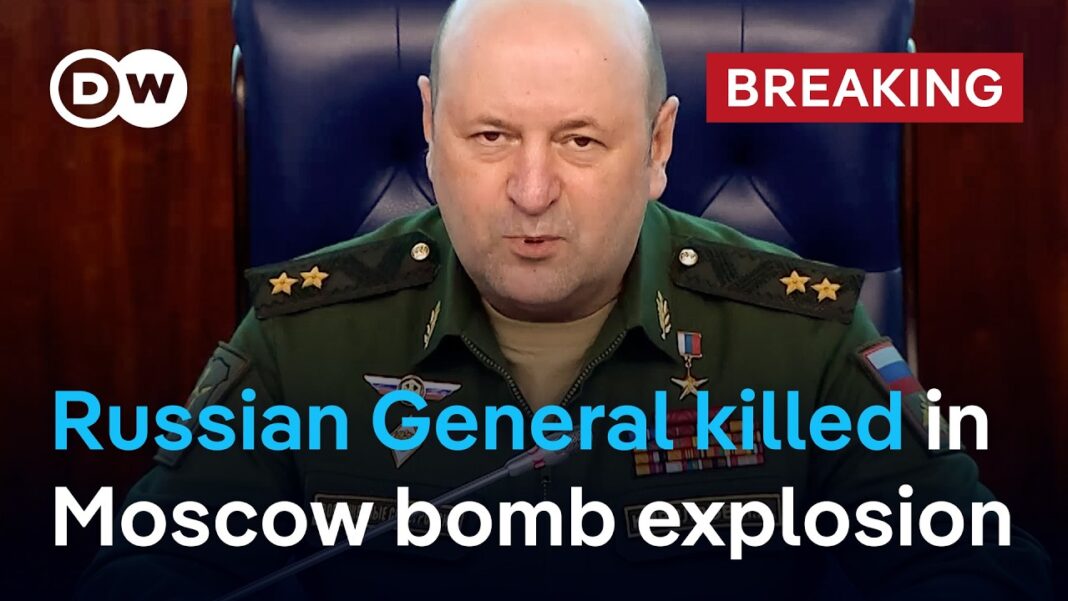The decision is tied to an earlier U.S. Supreme Court decision that held presidents enjoy different levels of immunity from prosecution for official acts.
New York Supreme Court Justice Juan Merchan rejected on Dec. 16 a long list of immunity-related arguments made by President-elect Donald Trump in an attempt to have the guilty verdict he received earlier this year thrown out.
Trump had argued that Manhattan District Attorney Alvin Bragg’s office improperly used certain evidence, including former White House advisers’ testimonies, since it contained material covered by presidential immunity.
His arguments stemmed from the U.S. Supreme Court’s decision this year in Trump v. United States, which held that presidents enjoy different levels of immunity from criminal prosecution for official conduct. Trump also said that because sitting presidents enjoy immunity from criminal prosecution, Merchan should dismiss the case.
Merchan disagreed in an order and letter to attorneys on Dec. 16. He said that Trump waited too long or failed to preserve objections to evidence and that information related to both preserved and unpreserved arguments did not receive protection under the doctrine of presidential immunity.
“This Court … finds that the evidence related to the preserved claims relate entirely to unofficial conduct and thus, receive no immunity protections,” Merchan said.
“As to the claims that were unpreserved, this Court finds in the alternative, that when considered on the merits, they too are denied because they relate entirely to unofficial conduct entitled to no immunity protections.”
Merchan added that if an error did occur regarding the evidence in question, “such error was harmless in light of the overwhelming evidence of guilt.”
In May, a jury found Trump guilty on 34 felony counts, raising the prospect that he could face prison. Experts previously told The Epoch Times that the supremacy clause of the U.S. Constitution would preclude Trump from serving time.
Bragg’s office argued that Trump attempted to conceal payments to adult film actress Stephanie Clifford. Trump has denied wrongdoing and the accusation that he had an affair with Clifford.
Merchan’s letter agreed with Bragg’s argument that Trump, as president-elect, didn’t enjoy the same level of immunity afforded to sitting presidents. This point of the debate focused on a 2000 memo in which the Department of Justice (DOJ) said prosecuting a sitting president was unconstitutional.
By Sam Dorman and Joseph Lord






